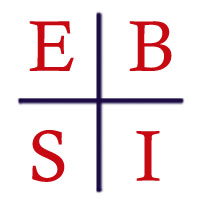Successful investors posses:
A vision – the ability to see what others do not see
Courage – the ability to act despite of fear
Creativity – the ability to think outside the box
Self-confidence – the ability to withstand criticism
Self-control – the ability to delay gratification.
Industrial-Age Thinking vs. Information-Age Thinking
| Industrial | Information-Age: |
| Get a job and save money | Create assets on your own |
| Your pension and Social Security will protect you in retirement | Your pension and Social Security will not support you when you retire |
| Your income will go down when you retire | Your income should increase as you age |
| Blue chip stocks and mutual funds are safe investment | Blue chip stocks and mutual funds will not protect you if there is a stock market crash |
| Study hard and find a safe, secure job | Study hard, but also become financially literate |
| Put your investment in the hands of someone else | Watch your investment but seek competent advisors |
Robert’s Cash Flow Quadrant:

E – Employee (driven by benefits)
S – Self-employed worker, or Small business owner (driven by self-sufficiency)
B – Business owner (driven by systems and ideas)
I – Investor (driven by absolute freedom)
On the right side of the Quadrant (B, I), you gain time and therefore freedom to make money, to give it away, and to have more time to be with your loved ones.
Assets vs. Liabilities
Assets put money in your pocket, while liabilities take money from you.
Assets are: Cash, Bank accounts, Stocks, Bonds, Mutual funds, Retirement funds, Debts owed to you, Net value of businesses you own, Net value of income-producing real estate you own.
Liabilities are: Credit cards balances due, Mortgage, Car loan, School loan, Personal loan, Taxes.
Income
There are three types of income: Earned, Passive, and Portfolio.
Financial statements
A financial statement is your ‘personal story’ told in numbers. Most people don’t prepare personal financial statements. They just try to balance their cheque books each month.
Summary by Gil Dekel, PhD. Webinar accessed here on 30 October 2010.
This summary © Gil Dekel. 6 Jan 2011.


 - Reading with Natalie, book here...
- Reading with Natalie, book here...